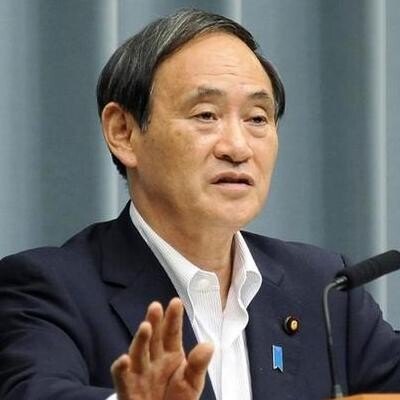hankyoreh
Links to other country sites 다른 나라 사이트 링크
Japan’s Kono disclosure likely to harm relations

By Lee Yong-in, staff reporter
A Japanese review of the 1993 Kono Statement published on June 20 that unilaterally made public the details of deliberations with the South Korean government not only violated diplomatic protocol but also seriously compromised the little trust that remains between the two countries, critics say.
The Kono Statement was the document in which Japan acknowledged that the comfort women had been forcibly recruited by the Japanese imperial army.
According to the review report summarizing the government investigation of the statement, it was the Japanese government that first proposed keeping the entire process of deliberations a secret, a proposal that South Korea accepted. Despite this, Japan was also the first to break the gentlemen’s agreement of maintaining confidentiality.
Significantly, Japan made public every detail of talks between working-level officials from both countries. In addition, the South Korean government has consistently maintained that Japan was first to ask for deliberations before preparing the Kono Statement, but the Japanese report makes it appear that it was South Korea that first proposed deliberations.
It is difficult to find a precedent of a country making a detailed disclosure of sensitive diplomatic information in pursuit of its own interests, especially considering that the event is relatively recent - having taken place only 20 years ago - and that the interested parties, the diplomats who were involved in the decisions as well as the comfort women, are still alive.
About the closest parallel would be when North Korea released secret communications with South Korea under the name of the spokesperson of its National Defence Commission on June 1, 2011, when inter-Korean relations were at a nadir. The North said that Blue House foreign strategy secretary Kim Tae-hyo - the South Korean responsible for contact with the North at the time - “had no scruples about pulling out an envelope full of cash, humiliating himself as he tried to bribe someone in an attempt to make progress on the summit.”
It is true that, during the 2012 presidential campaign, the ruling Saenuri Party (NFP) made public the transcript of a discussion about the Northern Limit Line (NLL) in the West (Yellow) Sea during the 2007 inter-Korean summit, but this was connected with a domestic political dispute. That just shows how unimaginable it is for “normal countries” to make public the details of their diplomatic negotiations.
Consequently, relations between Seoul and Tokyo seem likely to be considerably curtailed in the future. When trust is lost, working-level and high-level diplomats from both countries end up only making perfunctory, restrained remarks, only too aware of the possibility of the content of the discussions being made public. Essentially, this cuts the legs out from under diplomacy, which from time to time demands candid, heart-to-heart discussions and closed-door negotiations.
Please direct questions or comments to [english@hani.co.kr]

Editorial・opinion
![[Column] Season 2 of special prosecutor probe may be coming to Korea soon [Column] Season 2 of special prosecutor probe may be coming to Korea soon](https://flexible.img.hani.co.kr/flexible/normal/500/300/imgdb/original/2024/0426/3317141030699447.jpg) [Column] Season 2 of special prosecutor probe may be coming to Korea soon
[Column] Season 2 of special prosecutor probe may be coming to Korea soon![[Column] Park Geun-hye déjà vu in Yoon Suk-yeol [Column] Park Geun-hye déjà vu in Yoon Suk-yeol](https://flexible.img.hani.co.kr/flexible/normal/500/300/imgdb/original/2024/0424/651713945113788.jpg) [Column] Park Geun-hye déjà vu in Yoon Suk-yeol
[Column] Park Geun-hye déjà vu in Yoon Suk-yeol- [Editorial] New weight of N. Korea’s nuclear threats makes dialogue all the more urgent
- [Guest essay] The real reason Korea’s new right wants to dub Rhee a founding father
- [Column] ‘Choson’: Is it time we start referring to N. Korea in its own terms?
- [Editorial] Japan’s rewriting of history with Korea has gone too far
- [Column] The president’s questionable capacity for dialogue
- [Column] Are chaebol firms just pizza pies for families to divvy up as they please?
- [Column] Has Korea, too, crossed the Rubicon on China?
- [Correspondent’s column] In Japan’s alliance with US, echoes of its past alliances with UK
Most viewed articles
- 1Samsung subcontractor worker commits suicide from work stress
- 2‘We must say no’: Seoul defense chief on Korean, USFK involvement in hypothetical Taiwan crisis
- 3[Editorial] Korea’s surprise Q1 growth requires objective assessment, not blind fanfare
- 4Division commander ordered troops to enter raging flood waters before Marine died, survivor says
- 5Is Japan about to snatch control of Line messenger from Korea’s Naver?
- 6No good, very bad game for Korea puts it out of Olympics for first time since 1988
- 7US overtakes China as Korea’s top export market, prompting trade sanction jitters
- 8N. Korean delegation’s trip to Iran shows how Pyongyang is leveraging ties with Moscow
- 9Korea’s 1.3% growth in Q1 signals ‘textbook’ return to growth, says government
- 10[Column] Season 2 of special prosecutor probe may be coming to Korea soon